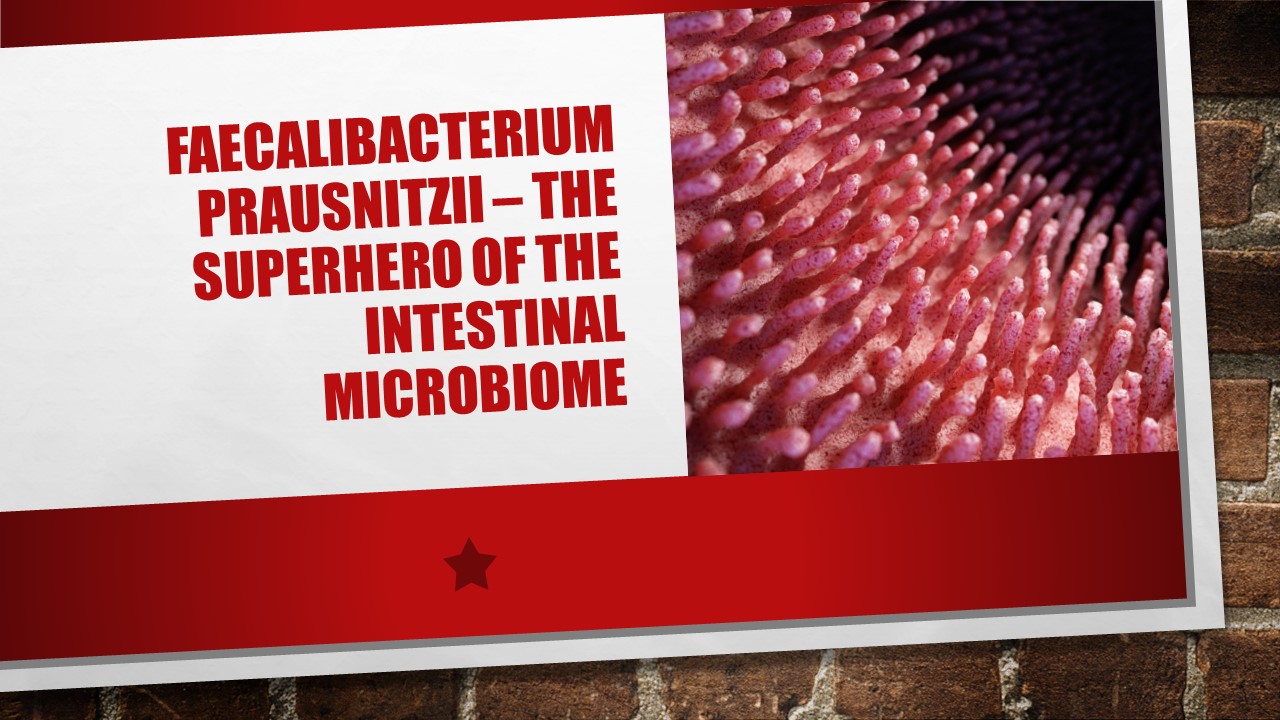Faecalibacterium prausnitzii. Yes, I know, that´s a mouthful. Well, this bacterium literally is the superhero of the gut, with a better data profile than any other critter down there. You may say, wait a second. I take probiotics. I thought one of the species from Bifidobacterium or Lactobacillus would be the superhero. Not even close. There are so many different species in the human microbiota. Roughly 1,500 on average. Some are bad actors, some are a bit innocuous, some are conditional and others are universal health-promotors. So let´s take a look at the gold standard for the health-promotors.
This species is on average, the premier butyrate producer in the microbiota. Butyrate is an incredibly beneficial compound in the body, with health-promoting roles in a wide variety of areas. In time, I´ll be releasing a presentation dedicated to it.
During and since my time as director of medical education for a microbiome firm, I´ve analyzed all of the human fecal microbiome data, for all of the most common diseases and conditions. In my data base, I have all of the data points, for each study, when a significant difference was found between the healthy controls and the cohort with a given condition. F prausnitzii has the best data profile of any other bacterium in the microbiota. Almost 100% of the time, when a significant difference is found between healthy controls and those with a given disease/condition, the unhealthy have less in their microbiome, while the healthy controls have more F prausnitzii.
If you are dysbiotic (an unhealthy balance in the bacteria etc in your microbiome), which is most people, don´t you want more of what the healthy people have? But this bacterium does not exist as a probiotic. It´s incredibly oxygen sensitive. As most beneficial bacteria are in the gut. But you can feed it the fuels it loves. In doing so, you can increase its abundance and it in turn you can increase your wellbeing.
F prausnitzii is not just a butyrate producer. It has several direct benefits. There are compounds identified, and yet to be identified within. For example, it supports serotonin transport. Serotonin is the neurotransmitter we think of for brain health, but most is in the gut.
F prausnitzii has also been shown to directly support gut integrity. You´re probably familiar with the term gut permeability. When bad bacteria do their thing, one result is the separation of the cells which line the gut. That´s gut permeability. A very important concept. When this happens, it allows whole or parts of bacteria, as well as whole or parts of proteins to make their way into the rest of you. This has enormous immunological consequences.
F prausnitzii also makes something called salicylic acid. Think aspirin. That´s right. An anti-inflammatory compound you can relate to. Salicylic acid is also a drug used, primarily for ulcerative colitis. What´s it used for? To reduce inflammation. You have a bacteria that can make its very own precursor for a pharmaceutical. Interesting, no?
This amazing bacterium also directly influences inflammation through other non-salicylic acid dependent mechanisms. One of which is called MAM (microbial anti-inflammatory molecule). This is the only bacterium known to produce this molecule. Since inflammation is at the root of so many, if not all diseases, wouldn´t it be wise to support a bacterium which can help?
If you´ve stumbled across this blog, then you´re trying to better your health in one way or another. And good for you. In our world as it is, we all now have to be our own health advocates. With a broken government, food and medical system, you need to take charge of your healthcare. So, educate yourself, as best you can. This is why I’ve launched my platform. You can find my presentation entitled, “Faecalibacterium prausnitzii – The Superhero of the Intestinal Microbiome,” in my Microbiome University tab, and also on my YouTube channel. If you have a condition or disease that you think would be well served by addressing your microbiome, you can visit the Protocols tab on my website, where you can find a science-based protocol which may dramatically improve your quality of life.

